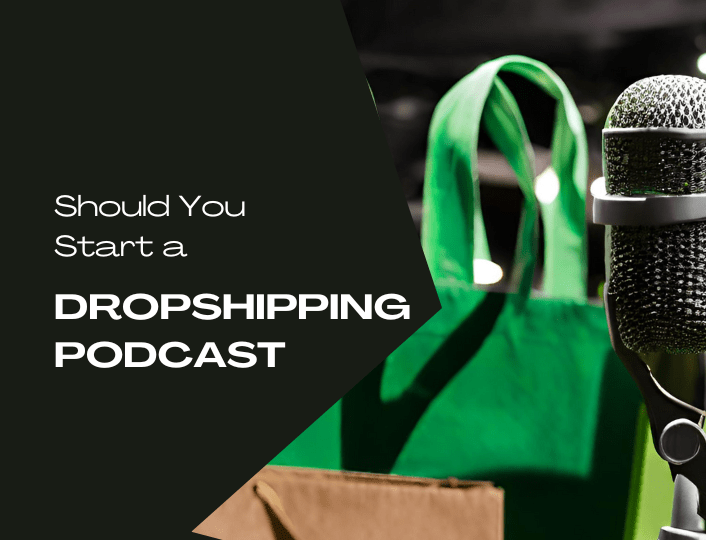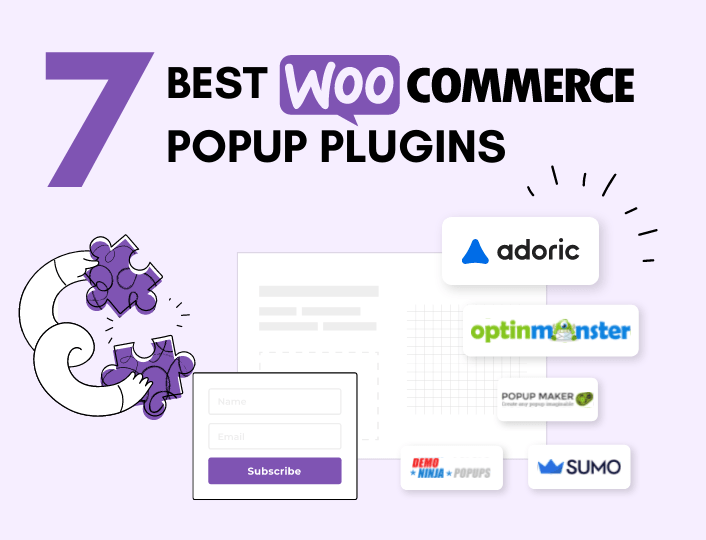Months ago I figured I wanted to learn more about dropshipping. I’d always heard people talk about selling online, so when my interest piqued – partly because a freelance prospect at the time was a dropshipping influencer – I scoured the internet for resources.
And I found a lot. YouTube videos, quick-fix Instagram reels, threads on X (formerly Twitter) that offered more questions than clarity on reading, and more. I realized that contrary to what I’d imagined, there was a plethora of information about dropshipping. If you didn’t know where you were looking, you’d get lost in the deluge. I didn’t, so yeah, I got carried away, and lost interest after a while.
Until early this year, when the topic popped up in our content plan and we worked on creating several articles related to dropshipping. One of these articles was a recommendation of top dropshipping podcasts for entrepreneurs.
Preparing that article, and gathering several expert insights from these podcasts, left me thinking, “What if these guys didn’t start a dropshipping podcast?”
Here, I’d be probing this thought from three perspectives: why, who, and how.
What are Dropshipping Podcasts?
Dropshipping podcasts are audio resources that help you understand the dropshipping ecosystem and manage your experiences like a professional. The insights, case studies, and reports from many of these podcasts make it easier to sell online and grow your business.
For years, dropshipping.com has offered a library of content for entrepreneurs and newbies curious about selling products online. Their blog features some of the best case studies, templates, and how-to guides for getting started as a dropshipper.
So it was no surprise to see them start a dropshipping podcast dubbed The Dropshipping Hub, hosted by Martin from DSCOM. Rather than reading through hundreds of words from a blog post or sitting with a dozen pages of case studies, you can simply plug into a podcast episode and listen on the go.
Shopify, being a leading global e-commerce platform, offers Shopify Masters, a podcast that shows you how to make customers happy. The Ecommerce Marketing School by Privy is another worthy podcast to listen to for premium dropshipping content.
The primary purpose of any dropshipping podcast is to offer no-bullshit education on starting and growing your dropshipping business.
Why Do We Need Dropshipping Podcasts?
Dropshipping is hard work. It’s figuring out the whats, hows, and wheres of selling online, building trust with buyers, finding reliable suppliers, tracking and fulfilling orders, and managing customer support. It’s spotting products with huge profit-margin before they blow up.
Dropshipping is A/B testing across Amazon, Alibaba, Ebay, and other ecommerce platforms to create repeatable sales systems. It’s recognizing that half of the dropshipping tips on social media is just influencers trying to sell a course.
Image showing two Reddit users confirming that dropshipping is not easy and the “gurus” won’t tell you that.
A typical dropshipping process for a new seller involves several steps including supplier selection, product selection, store setup (after hours of debating WooCommerce vs Shopify vs Amazon), product setup, awareness and marketing, customer order, shipping and fulfillment, order delivery, and customer feedback/support.
Being an experienced seller only removes a few steps. Awareness, marketing, order fulfillment, and profit analysis have no expiration dates in dropshipping. With the emergence of new platforms including TikTok Shop, there’s always something new to catch up on.
What do Dropshipping Podcasts Offer?
Insights. Because most dropshipping podcasts feature industry experts, any seller or enthusiast can get the information they need from these podcasts. No paid courses, no call-to-action asking anyone to subscribe to a mailing list, no clickbait titles. Just 100% education.
Take the last ten episodes from AutoDS’s podcast, Talk from Dropshippers to Dropshippers:
- How to Dropship from AliExpress to Ebay – Full Beginners Guide
- The Easiest Way to Make Money Using Only Google.
- How to Build a Branded Dropshipping Store | Beginners Step-by-Step Guide
- How to Start a Dropshipping Boutique Store – Beginners Guide
- The Ultimate Dropshipping Checklist.
Each episode runs under thirty minutes. Doing the math, you’d run through all five episodes within three hours and come away with a wealth of dropshipping knowledge.
Dropshipping podcasts also offer community building opportunities. Many dropshipping podcasts encourage listener engagement through Q&A sessions, guest interviews, and community forums. This fosters a much-needed sense of community and support among entrepreneurs.
Who Should Start a Dropshipping Podcast?
Pat McAfee runs The Pat McAfee Show. Steven Bartlett hosts The Diary of a CEO. Jay Shetty hosts On Purpose with Jay Shetting. An experienced Shopify team manages the Shopify Masters podcast. See a pattern?
You should only start a dropshipping podcast if you’ve built enough experience selling stuff online. Yes, you need to have done the work, built a business, managed criticisms and negative feedback, dealt with low-quality supplies, fulfilled hundreds of orders, and more, before you sit behind a microphone to drop some ecommerce gems.
Is expertise a measure of years of practice? Not necessarily. Sure, the longer you’ve sold, the more you’re likely to know. What counts, though, is your track record in dropshipping.
Say you’ve been juggling Alibaba and AliExpress for five years but haven’t significantly grown your profit margins during this period, you shouldn’t think of starting a podcast, right?
You also need experts on dropshipping podcasts because listeners anticipate actionable insights and tips to improve their marketing, product sourcing methods, and business scaling strategies. If you know that you can offer these, then the podcasting stage is yours to mount.
How to Start a Dropshipping Podcast?
More than setting up a quality studio or creating awareness about your podcast, here are some tips for starting a successful podcast:
Provide Expert Insights
This has been an echo through this article. Dropshipping podcasts that feature experienced entrepreneurs sharing their expertise and suggesting strategies tend to be the most successful. This helps provide listeners with valuable, practical information to apply to their own businesses.
Prepare a List of Diverse Topics
When setting out, reflect on your journey in dropshipping. Draw out topics related to the key subject and see if you can share value on them. Successful dropshipping podcasts cover a wide range of relevant topics, such as product research, supplier relationships, marketing techniques, store optimization, and industry trends.
Maintain Consistency and Freshness
The beauty of sharing your experiences is that they are peculiar to you. We can always tell if someone’s sharing an original story, or if what we’re listening to is a rip-off of a popular version.
Be authentic with what you share. Be consistent with the frequency of new episodes with up-to-date information and insights. This keeps the podcast content relevant and engaging for the audience.
Collaborate
Except you’re bound by a contract that prohibits collaborating with competitors and colleagues, you shouldn’t sleep on the value of collaboration. Inviting guest speakers, industry experts, and successful dropshippers to share their knowledge and perspectives can help add credibility to the podcast. Get them to share case studies and scenarios that show what others may be missing out on.
The Dropshipping Hub podcast practices this. Some months ago the hosts invited Michael Tekin, CEO of Brandsgateway – a brand that focuses on selling luxury products – to discuss selling luxury brands such as Dolce & Gabbana, Gucci, and Swarovski in a one-hour tell-all episode.
That’s one way to create relatable content for listeners.
Cater to All Experience Levels
No one, however learned, is an island of knowledge. Structure your podcast to provide content suitable for both beginners and experienced entrepreneurs. Start with foundational topics and gradually progress to more advanced strategies, ensuring the podcast is accessible to a wide range of listeners.
Conclusion
You’ve heard it often: we’re in an information pandemic age. There are too many tips on what to do, but despite all the content on the internet, we don’t have enough stories that show us exactly how to get better at what we do.
Dropshipping isn’t excluded. If you’ve got time-tested value to share, and you rate yourself an expert (by the tips shared in this article), then grab the opportunity to connect with a ready audience.
Get a mic, get some light, and record away.




